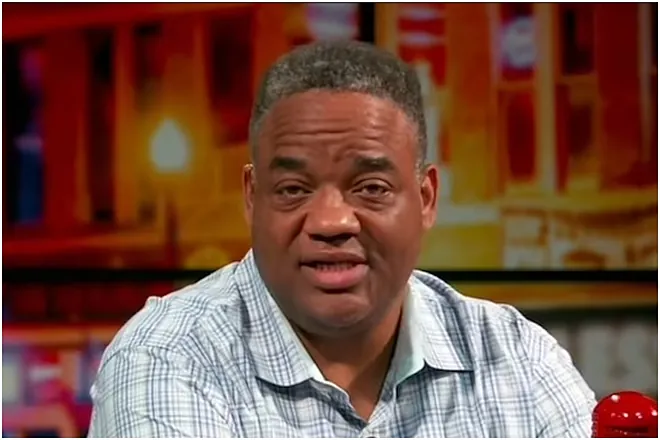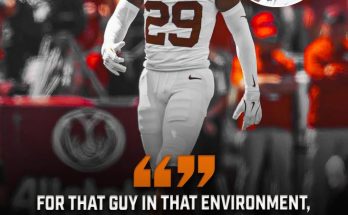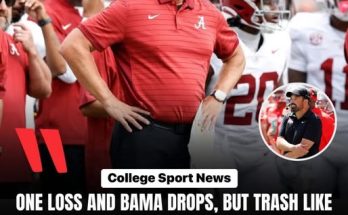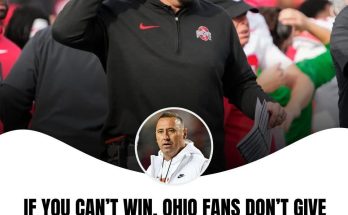Jason Whitlock has ignited yet another firestorm, this time by calling for the Indiana Fever to replace head coach Stephanie White with what he specifically referred to as a “heterosexual” coach — all, he claims, for the benefit of Caitlin Clark. The controversial sports commentator, no stranger to polarizing statements, made the remarks during a podcast segment that has since gone viral, drawing backlash from across the sports and cultural spectrum. His comments, laced with implications about sexuality, leadership, and women’s sports, have turned an already tense atmosphere around Clark’s WNBA debut into something deeper, something far more combustible than basketball.
Whitlock, who has built a career by inserting himself into heated national conversations, took issue not with Clark’s play or performance, but with what he characterized as an “environment ill-suited” for developing one of the most anticipated rookies in sports history. “Caitlin Clark needs a coach that gets her,” he said. “Someone who understands how to protect her, build her up, and help her navigate the spotlight. Not someone who’s pushing an agenda.” He didn’t stop there. “If the Fever really cared about her development,” he continued, “they’d hire a strong, heterosexual coach that isn’t trying to use her to validate some lifestyle or ideology.”
The audacity of the statement struck many as outrageous and offensive, not only for its blatant homophobia but also for the undermining of a professional coach’s credentials and character based purely on personal identity. For clarification: Stephanie White isn’t even the current head coach of the Indiana Fever. Christie Sides holds that role. Whether Whitlock misspoke or deliberately misidentified the coach, the error underscores a deeper issue — this was never about basketball acumen. It was about ideology. It was about using Clark as a pawn in a larger cultural war that Whitlock has waged for years.
Clark, meanwhile, has been under a microscope since the moment she was drafted first overall by the Fever. Her college career was record-breaking, her popularity astronomical, and her move into the WNBA marked as a pivotal moment for the league’s visibility. And yet, rather than allowing her the space to grow into the pro game like any young athlete, she has been pulled in every direction — from being labeled a “white savior” to becoming a flashpoint in debates about race, gender, and now, sexuality. Through it all, Clark has remained largely poised and focused, emphasizing her commitment to her team and her personal development. Still, she hasn’t been able to escape the narrative-building that pundits like Whitlock seem determined to construct around her.
The problem with Whitlock’s suggestion isn’t merely that it’s homophobic — although it undeniably is — but that it grossly underestimates the professionalism and resilience of both Clark and her coaches. To imply that a coach’s sexual orientation disqualifies them from effectively leading a team is not only discriminatory, it’s absurd. Coaching is about strategy, communication, trust, and leadership. None of those qualities are defined by sexual preference. And to wrap this kind of commentary in the guise of protecting Caitlin Clark is both condescending and manipulative.
Critics have rightfully pointed out that Clark has never suggested she feels unsupported by her coaching staff or uncomfortable in her environment. If anything, she has repeatedly praised her teammates and coaches for helping her transition into the league. But in Whitlock’s version of reality, Clark is a delicate figure who needs a paternalistic, ideologically pure protector to truly thrive. This not only reduces her to a caricature of a damsel in distress, it also weaponizes her image against the very league she now represents.
The WNBA, for all its challenges and growth, has long been a space where inclusion is not just welcomed but foundational. From players to coaches, the league has cultivated an environment where LGBTQ+ individuals can participate openly and without fear of reprisal. This has not always been easy. There have been protests, controversies, and culture wars waged around WNBA players for years. But the league has remained committed to being a space that reflects diversity in all its forms. For Whitlock to call for a reversal of that — to essentially demand the sanitization of the league to suit a specific worldview — is a regressive step that threatens the integrity of the sport.
And it’s important to note how strategic these types of statements are. Whitlock isn’t just making an off-the-cuff comment. He’s positioning himself within a broader media ecosystem that thrives on outrage and culture war provocation. By dragging Clark and the WNBA into this particular fight, he ensures clicks, shares, and viral discourse. But the real damage is in how these narratives ripple outward — reinforcing bias, sowing division, and putting added pressure on young athletes who already carry enough weight on their shoulders.
There’s also the question of what it means for Clark herself. While she has yet to respond directly to Whitlock’s comments, it’s easy to imagine the discomfort they may cause. How do you respond when people insist on framing your career through the lens of someone else’s politics? How do you focus on growth and performance when every move is dissected not just for what it means on the court, but for what it says about society at large? And most troublingly, how do you maintain team unity when pundits outside the locker room try to drive a wedge between players and coaches based on identity?
Whitlock’s statement is not just an opinion — it’s an attack. An attack on the professionalism of WNBA coaches. An attack on the credibility of women’s sports. An attack on LGBTQ+ inclusion. And an attack on Caitlin Clark’s autonomy. Because at its core, it suggests that Clark cannot succeed unless the environment around her conforms to a narrow, rigid, and outdated ideal of leadership and morality.
Yet despite the backlash, Whitlock remains unrepentant. Doubling down on social media, he framed the outrage as proof that he struck a nerve. “Truth hurts,” he tweeted. “Real talk makes people uncomfortable. I said what needed to be said.” But the truth is, his version of “real talk” is little more than a tired rehashing of prejudices repackaged as concern. And the discomfort he stirs up has little to do with bravery and everything to do with exploitation.



